China launches huge stimulus packages for 11/11 shopping season
Originally a holiday to celebrate singlehood in China – the antithesis of Valentine’s Day – Singles’ Day (11/11) has now evolved into a weeks-long online shopping festival. And this year, it started earlier than last year, setting a record for what will become the longest Singles’ Day shopping spree ever.
This year’s 11/11 shopping season faces many challenges: China’s economy is growing at just 4.8% in the third quarter – the slowest in a year; deflation is lingering and domestic demand is weak. These are the reasons why e-commerce giants have launched unprecedented stimulus packages.
At an event in Shanghai, Alibaba touted a huge investment in its biggest sales event of the year, including 50 billion yuan ($7 billion) in incentives for its top-spending members. The sale kicked off on the evening of October 15 and will run until midnight on Singles Day, November 11. In the first hour alone, 35 major brands sold more than 100 million yuan worth of goods.
JD.com and Douyin (the Chinese version of TikTok) launched the campaign on October 9.
JD.com said it would launch more than 100,000 “hot” products at the lowest prices of the year. It even dumped 50,000 pairs of thermal pants for just 2 yuan (more than 7,000 VND) each (including shipping).
If last year, household goods were popular, this year it is digital devices or health and beauty products. Analysis shows that this year, Chinese consumers prioritize "real value" or experience; no longer chasing after maximum promotions like before, but aiming for "sustainable quality". This trend reflects a reality: China is transforming from a "commodity economy" to a "digital experience economy", led by AI and customer data.

The "Singles' Day" shopping topic has been heating up in Chinese media these days.
What's different about this year's Singles' Day shopping season?
The topic of “Singles’ Day” shopping has also been heating up in Chinese media these days. One noticeable point is that this year’s event was pushed up significantly earlier, creating the longest 11/11 shopping season ever.
According to the Daily Economic News website, many major Chinese e-commerce platforms such as JD and Douyin have started the 11/11 program since October 9, which is right after the end of China's National Day holiday. Meanwhile, although later, Alibaba's Tmall platform has also started the promotion since October 15.
Securities Times commented that this is an "unwilling" choice of e-commerce platforms to increase sales, in the context of increasingly fierce competition and the somewhat declining attraction of the 11/11 shopping event.
Another noteworthy point is that AI technology is being applied more and more widely. A recent report shows that AI is being fully integrated into China's e-commerce business chain, from content production, smart recommendations, customer feedback, to supply chain management. Accelerating AI integration will not only improve sales efficiency and enhance user experience, but also open up a trend of shifting from the current traffic-based growth model to an intelligence-driven model.
Assessing the prospects of the "Singles' Day" shopping festival
Although this year’s 11/11 shopping season is only one-third over, the published figures show a relatively positive growth outlook. According to the Securities Times, as of October 20, sales of more than 52,000 brands on the JD.com platform increased by more than 300% compared to the same period last year. Meanwhile, in just the first hour of the promotion, the Tmall platform recorded nearly 19,000 brands with a transaction volume higher than the first day of the promotion last year.
As discount activities are gradually becoming saturated, many platforms are also stepping up their search for new growth drivers. According to Sina, Taobao will spend 1 billion yuan on direct subsidies, aiming to help 100,000 merchants double their overseas transactions during this year's 11th shopping festival.
According to Xinhua News Agency, the food delivery and instant retail market - a business type that has been heating up recently, is expected to become a new growth point for many platforms. In addition, China recently issued a special batch of super-long-term government bonds worth 69 billion yuan to support new purchases of consumer goods. This, along with incentives from platforms, will contribute to creating a double driving force, promoting consumption from now until the end of the year, including the 11/11 shopping event.

The excitement of this year's Singles' Day shopping festival is said to be thanks to the pivotal role of Artificial Intelligence technology.
When AI Decides Winners in E-Commerce
The excitement of this year's Singles' Day shopping festival is attributed to the pivotal role of Artificial Intelligence (AI) technology. If 10 years ago, e-commerce was a race of user scale and logistics, now the "strategic weapon" is artificial intelligence. Maximizing the strengths of AI is changing the world's largest shopping event - where goods or prices are no longer the only factors determining success.
This year, e-commerce giant Alibaba has used AI tools as a "growth weapon" to boost transaction volume. It uses AI to analyze more than 1 billion user behaviors every day on Taobao and Tmall to predict products suitable for each customer, personalizing the shopping experience. It also uses AI-powered virtual try-on features to enhance the shopping experience for customers. In terms of shipping, the Cainiao system uses AI to forecast delivery needs, reducing order processing time by 20%.
"Compared to 2022, the year of artificial AI, the energy consumption scale of Alibaba Cloud's global data centers is expected to increase tenfold by 2032. This is part of our long-term plan, as we believe such a large investment will promote the development of the AI industry and prepare for the era of Artificial Super Intelligence," said Mr. Wu Yongming, CEO of Alibaba Group.
Instant delivery (i.e., receiving goods within an hour) is also a focus this holiday season. JD.com, Alibaba's traditional rival, has been quick to embrace AI in logistics, warehousing, and customer service. JD has developed an AI tool that predicts shopping behavior to tailor merchandise to each region. With its "autonomous AI" logistics network, JD's delivery robots and drones are coordinated by AI in major transportation hubs like Beijing and Shenzhen. This creates a huge advantage in a context where consumers demand more speed and accuracy than ever before.
Meanwhile, Douyin - the domestic version of Tiktok - currently dominating the livestream sales field - uses powerful AI algorithms to analyze user behavior through watched videos, interactions, livestream viewing time, shopping history, geographic area, age... From there, the platform recommends suitable products for each consumer, with an extremely high level of personalization.
Corporations are turning to “behavioral AI” – technology that can predict emotions and shopping motivations – to not only react to consumers, but also control consumption habits through AI recommendation algorithms.
Source: https://vtv.vn/khi-le-hoi-mua-sam-ngay-doc-than-den-som-10025102311430905.htm










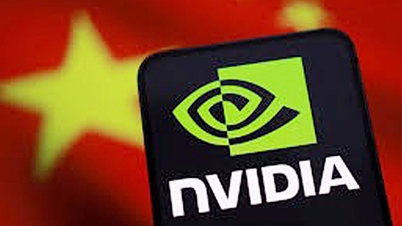





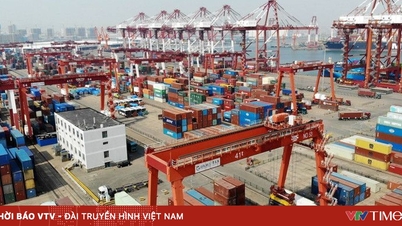


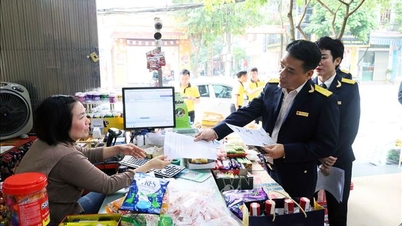

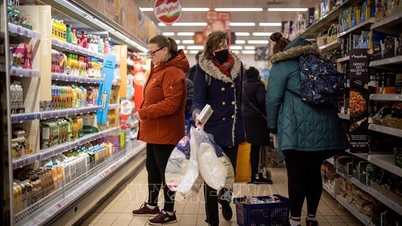

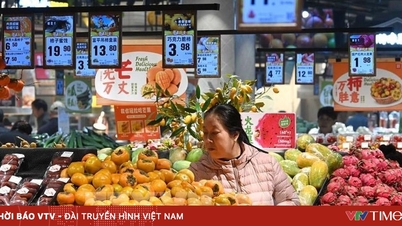







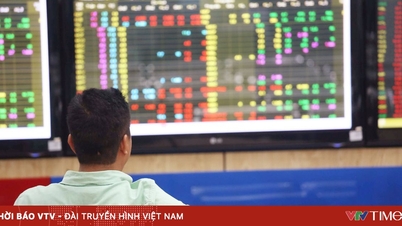
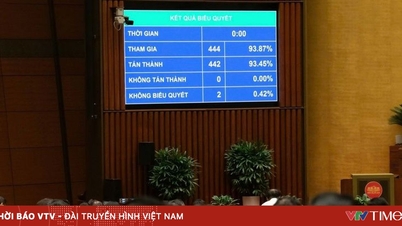






![[Video] The craft of making Dong Ho folk paintings has been inscribed by UNESCO on the List of Crafts in Need of Urgent Safeguarding.](https://vphoto.vietnam.vn/thumb/402x226/vietnam/resource/IMAGE/2025/12/10/1765350246533_tranh-dong-ho-734-jpg.webp)









































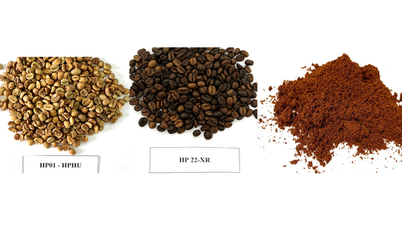
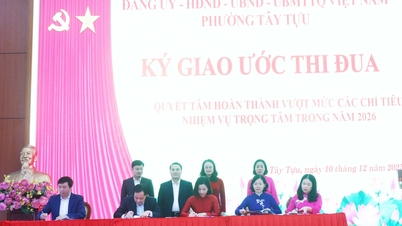
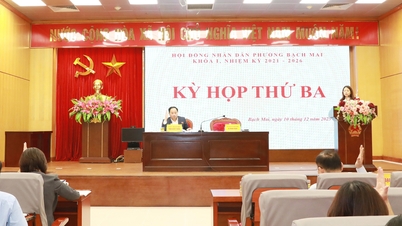

























Comment (0)